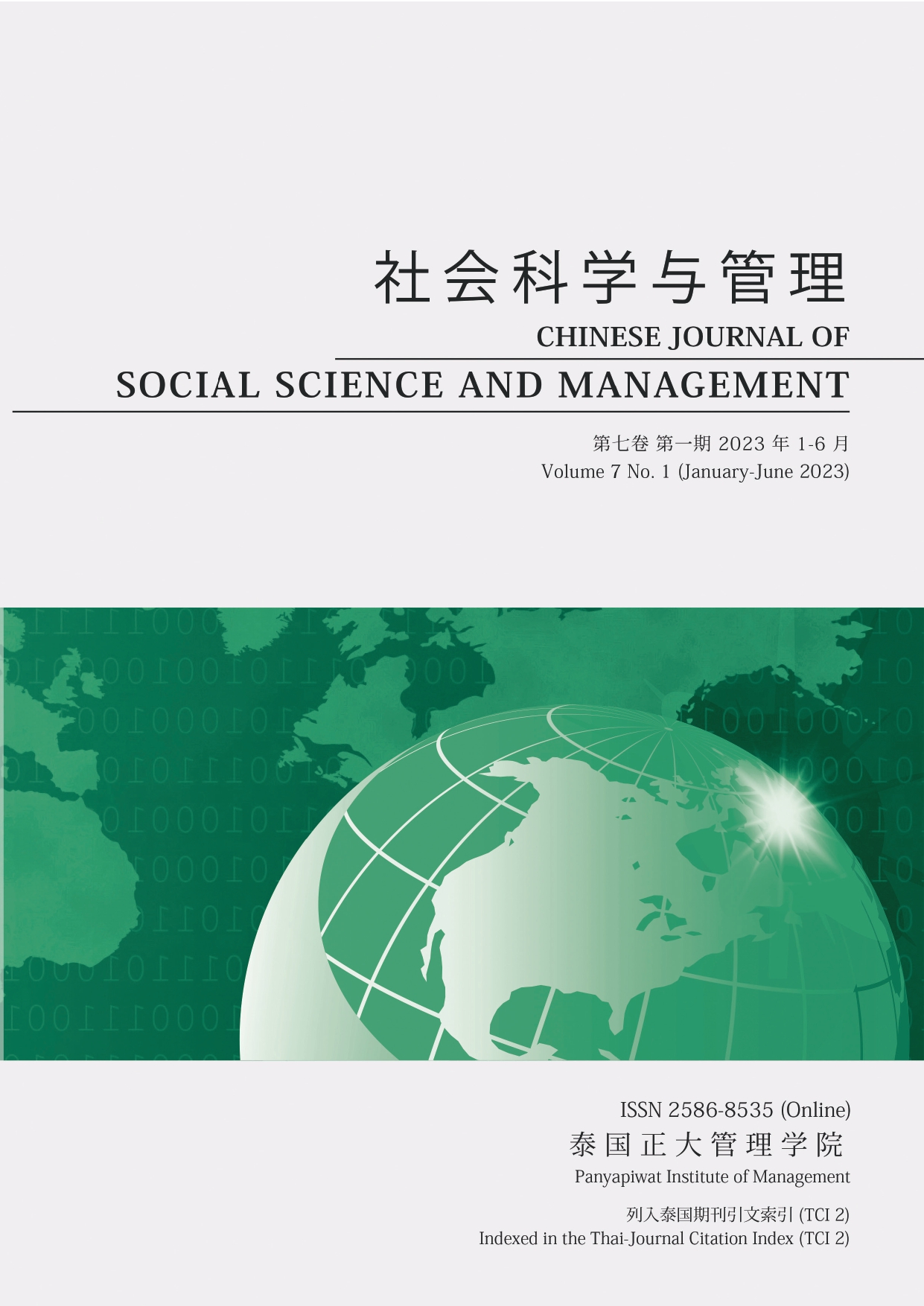THE INTERMEDIARY ROLE OF ORGANIZATIONAL IDENTIFICATION AND LEADER-MEMBERS EXCHANGE BETWEEN TRANSFORMATIONAL LEADERSHIP AND EMPLOYEE FOLLOWING BEHAVIOR
Main Article Content
Abstract
In the environment of China’s economic transformation, transformational leadership and how to have a positive impact on the survival and development of the company as well as organizational practice are signifcant. In the context of Chinese culture, this article explored the influence of transformational leadership style on employee follow-up behavior and the potential influence mechanism. Based on data analysis of 412 valid questionnaires, it was concluded that transformational leadership had a positive impact on employee compliance behavior. Organizational identifcation and leader member exchange played intermediary roles between transformational leadership and employee compliance behavior. This study revealed a positive relationship between transformational leadership and employee compliance behavior and also indicated the importance of employee compliance behavior in modern corporate management practices. The end of the article gives concrete and feasible practical enlightenment, which aims to promote the deepening and development of leadership-related research felds.
Article Details

This work is licensed under a Creative Commons Attribution-NonCommercial-NoDerivatives 4.0 International License.
Chinese Journal of Social Science and Management Editorial Division
The Office of Research and Development, Panyapiwat Institute of Management
85/1 Moo 2, Chaengwattana Rd., Bang Talat, Pakkred, Nonthaburi 11120, Thailand
Tel. 02 855 01048 E-mail: cjssm@pim.ac.th
References
Ashforth, B. E., & Mael, F. (1989). Social identity theory and the organization. Academy of Management Review, 4(1), 19-29.
Carsten, M. K., Uhl-Bien, M., & West, B. J. (2010). Exploring social constructions of followership: A qualitative study. The Leadership Quarterly, 21(3), 543-562.
Chen, Y. Y. (2018). Research on the impact of transformational leadership on employee follow-up [Master’s thesis]. Beijing Jiaotong University. [in Chinese]
Decoster, S., Camps, J., & Stouten, J. (2013). Standing by your organization: The impact of organizational identifcation and abusive supervision on followers’ perceived cohesion and tendency to gossip. Journal of Business Ethics, 118(3), 623-634.
Gao, X. Y. (2015). The influence of transformational leadership on employee admonition: The mediating role of group identity and the moderating role of power distance [Master’s thesis]. University of Science and Technology of China. [in Chinese]
Li, C. P., & Shi, K. (2005). Structure and measurement of transformational leadership. Journal of Psychology, 6, 803-811. [in Chinese]
Li, Z. W. (2016). Research on the mechanism of transformational leadership on employee follow-up [Master’s thesis]. Dongbei University of Finance and Economics. [in Chinese]
Ma, J. (2020). Research on the relationship between inclusive leadership and following behavior: Based on the analysis of multiple intermediary effects of identities in the organization. Journal of Liaoning University, 3, 104-113. [in Chinese]
Oldham, G. R., & Cummings, A. (1996). Employee creativity: Personal and contextual factors at work. Academy of Management Journal, 21(3), 11-21.
Tang, X. (2008). The impact of transformational leadership on organizational citizenship behavior and job performance [Master’s thesis]. University of Suzhou. [in Chinese]
Uhl-Bien, M., & Carsten, M. K. (2007). Being ethical when the boss is not. Organizational Dynamics, 36(2), 87-201.
Uhl-Bien, M., Riggio, R. E., & Carsten, M. K. (2014). Followership theory: A review and research agenda. Leadership Quarterly, 25(1), 83-104.
Wang, M. (2013). Research on the relationship between transformational leadership, organizational identifcation and advocacy behavior [Master’s thesis]. Jinan University. [in Chinese]
Wang, X. H., & Howell, J. M. (2010). Exploring the dual-level effects of transformational leadership on followers. Journal of Applied Psychology, 95(6), 1134-1144.
Wu, W. (2019). Research on the influence mechanism of transformational leadership on the matching of employee-organizational values [Master’s thesis]. Zhejiang University of Finance and Economics. [in Chinese]
Xu, S. (2013). Following power: Connotation, influencing factors and the mechanism of leadership effectiveness [Doctoral dissertation]. Jiangxi University of Finance and Economics. [in Chinese]
Yang, L. J., & Wang, S. (2012). Research on the influence mechanism of transformational leadership on employees’ organizational citizenship behavior. Business Age, 4, 93-95. [in Chinese]
Zhang, B. Y. (2019). The influence of transformational leadership on subordinates’ active following behavior: The mediating role of trust [Master’s thesis]. University of Electronic Science and Technology of China. [in Chinese]
Zhang, J. (2013). A cross-level study of transformational leadership and employee performance [Doctoral dissertation]. China University of Geosciences. [in Chinese]
Zhao, S. S., Wu, H. H., & Shi, J. M. (2019). Benevolent leadership and employee following power—— A moderated mediation model. Luojia Management Review, 3, 54-70. [in Chinese]
Zhou, W. J., Song, J. W., & Li, H. L. (2015). Connotation, structure and measurement of following force in Chinese context. Journal of Management, 3, 355-363. [in Chinese]


